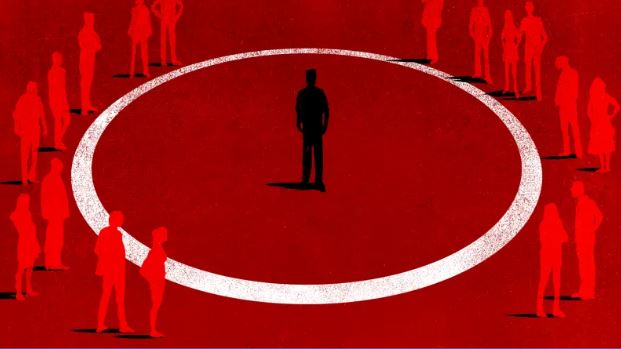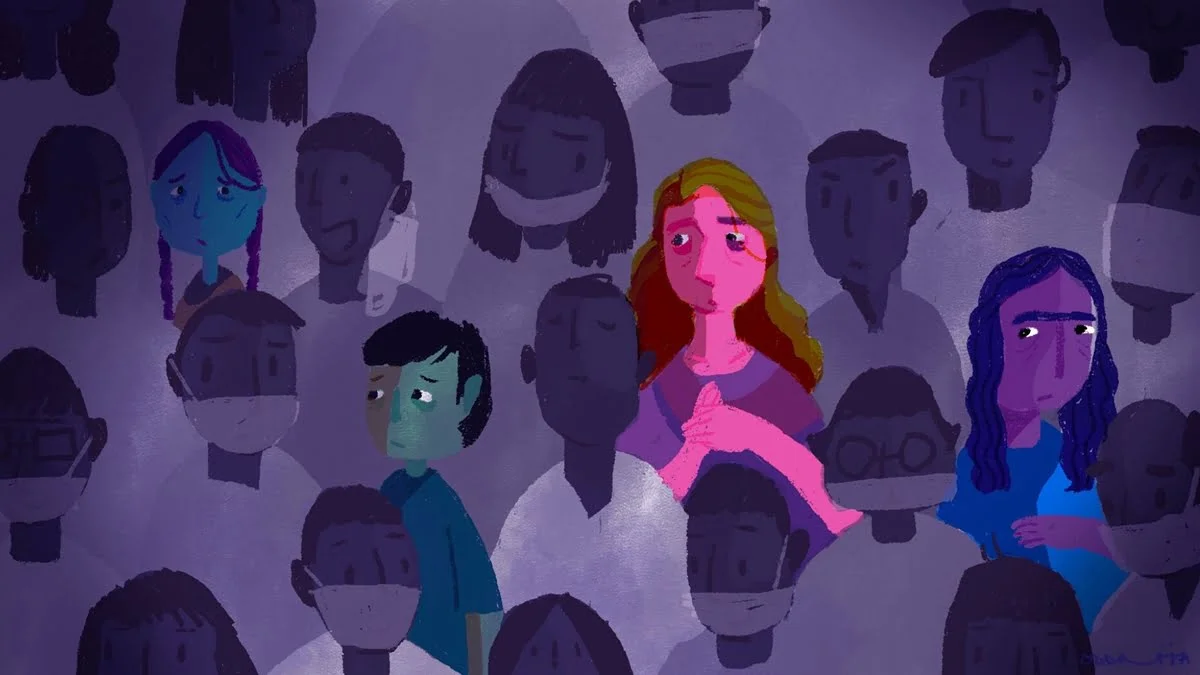One only has to browse through the series of confessions attached to hashtags such as #YesAllWomen, #WhyIDidn’tReport and #BelieveSurvivors to understand the extreme prevalence of sexual violence across the globe. These hashtags, and associated movements, have been focused on creating an environment where reporting sexual violence is made safer. As seen from the MeToo movement’s influence, millions of women (and men) across the world have been galvanised to share their experiences of victimisation.
The aim: to hold perpetrators accountable on a personal, professional and state level.
Sex Crimes Are Different, And Must Be Treated As Such
It is instinctive to view sexual offence as a crime unlike any other. However, we forget to apply this understanding when creating justice systems to deal with sexual offences.
Currently, criminal justice systems treat sex crimes like any other kind of crime, and as such punitive schemes emphasise retribution. We witness laws surrounding sexual offences being strengthened in the wake of a grotesquely tragic event. Strengthening takes the form of harsher sentencing and wider recognition for what qualifies as an act of sexual offence. It is based singularly on the mistaken notion that only the gravest of punishments will deter one from becoming a perpetrator of sexual violence.
A government crackdown on sexual offence seems perfectly righteous but only serves to placate a hurt and vengeful populace – or worse, win electoral “brownie points” – rather than address the deeper issue of sexual violence. It seems to me that people truly desire justice for both victim and perpetrator, but we are satisfied with an approach that matches our sensibilities, rather than one that actually delivers meaningful justice to victim and perpetrator.
It seems to me that we are satisfied with an approach that matches our sensibilities, rather than one that actually delivers meaningful justice to victim and perpetrator.
The notion of ‘second chances’ feels discordant with the impression one has of sexual offenders. We are constantly desensitised to the humanity of perpetrators; it is considered a sign of weakness. However, as Sophie Karasak, a campus sexual assault survivor, points out: “dehumanizing the people who committed sexual assault for years by calling them monsters [whilst] learning that the people who commit these crimes are our friends, co-workers, family members and partners” is a difficult moral position to navigate. The underlying issue is the evil deed negating the humanity of a person; thus, sex offenders are labelled as ‘monsters’, less than human.
One cannot relegate the existence of unsavoury elements of human sexuality – paedophilia, rape and incest – to the realm of inhumane, monstrous or inexplicable. A limited understanding of human will and psychology – specifically how their confluence shapes sexual behaviour – is being employed in the creation of state punishment schemes, rendering them largely unable to deliver justice to both victim and perpetrator.
Also read: KPS Gill – The Sexual Harasser Remembered As A Supercop
There is considerable evidence that current justice system serves society poorly. Our punitive schemes rely too heavily on intuitive rightness, as opposed to being based on evidence of what works to eliminate impulse of re-offending – the first and foremost priority of the state to society.
India has recently joined the list of countries whose sex crime laws are raising concerns. Countries such as the USA and the UK have also found considerable issues with the implementation of a sex-offender registry. Yet, the Indian government has blindly followed their lead – likely in the wake of the announcement of India being the most dangerous country to be a woman in – instead of an alternative or improved measure and without data on recidivism rates. The Sex-Offender Registry, that has been recently introduced, will store addresses, fingerprints and other personal details. The public may access to the information, making offenders vulnerable to vigilante violence, in addition to it being a serious breach of privacy. These measures will culminate with sex offenders – bear in mind, these are people who have already served time – being isolated through denial of housing and limited job opportunities, making fears of re-offence a self-fulfilling prophecy.
The time served by sex offenders is characterised by harsh environments and denial of rights and entitlements, which have negative impact on the well-being of perpetrators, directly increasing chances of re-offence upon release due to poor mental health outcomes based on experiences. The penal system is primarily designed to act as a deterrent, thus offenders’ experience of it can only reduce the impulse to re-offend out of fear of being caught and convicted. But, as explored earlier, sexual offences are differently motivated, thus reducing recidivism should be focused on creating an understanding of the action as criminal/immoral.
As the highest body of authority and access to resources within a country, it is the responsibility of the state to reform sex offenders, and an approach that departs from the traditional punishment models and goes deeper than rehabilitation and re-integration would be optimal.
What Are Some More Ideal Alternatives?
The most noble, beneficial and least popular aim of any justice system should be to rehabilitate and, more importantly, reform sex offenders. Yes, they do deserve second chances. No, that does not mean that they are being ‘let off the hook’ for the damage they have caused.
No, that does not mean that they are being ‘let off the hook’ for the damage they have caused.
By recognising the humanity of sex offenders, we become more receptive to reformative and rehabilitative justice systems. For instance, Beena Chintalapuri (a cognitive psychologist) single-handedly addressed recidivism rates in India by engaging with sex offenders – and other violent criminals – through cognitive behavioural training. She is driven about prison reform and using her knowledge of psychology to help inmates correct their own behaviour, to respond differently to their impulses. At the core of her initiatives is the desire to humanise offenders and ensure “everyone be treated equally”, without minimising or excusing the behaviour. A TIME magazine article showcases the positive impact of sex therapy – essentially what Beena’s measures are – where human connection helped build empathy, which is key to understanding the damage caused by the offensive act.
Alongside the state’s structure for criminal justice, a few Indian organisations – such as Ashiyana Foundation, Enfold Trust and Leher – are pursuing restorative justice for sexual offences. They seek to work with offenders “to help them develop a sense of accountability, remorse, identify their own needs in order to repair the harm” they have caused. The RJ circles have had a profoundly positive impact, especially for juvenile offenders to begin navigating rehabilitation through renewed ambition and improving social/emotional skills.
Still, these measures remain technically outside the state’s structure for criminal justice. Recent scrutiny of prisons has led to increased support for more humane punishment conditions, and calls for comprehensive sex-offender treatment programmes. The support isn’t limited to sexual offences, as the understanding of the role the state should play in the lives of incarcerated people is expanding.
After all, the current system of punishment, which doesn’t provide avenues to improve lives and become re-integrated into mainstream life, then it might as well be labelled as state-approved lynching.
A Few More Thoughts…
Admittedly, the conversation about second chances for sex offenders must be preceded – or at least occur in tandem – with the acknowledgement of the challenges faced by victims when dealing with the criminal justice system.
Also read: Sex Offender’s Registry – A Misplaced Danger?
By suggesting a more humane approach to deal with the seeming epidemic of sexual violence, I do not wish to minimise the trauma experienced by victims. I simply wish to highlight the necessarily different nature of sex crimes, and thus suggest the best approach the state must take to improve society.
Featured Image Source: Gizmodo
About the author(s)
Richa is talkative, argumentative but, above all, loves all things feminism.




